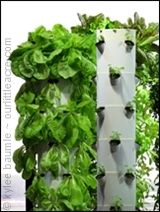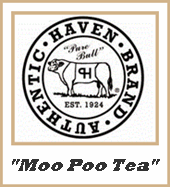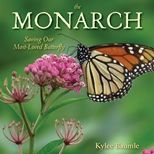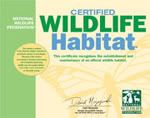As our gardens have expanded and evolved over the last three years, so has the health and vigor of the plants there. Some of this is due to natural growth...
"The first year they sleep,...and some of it is due to the diversity that has occurred because of my ongoing obsession with all kinds of different plants.
The second year they creep,
The third year they leap."
One of the reasons that a plant might not due well is because of insect predators. Certain plants just attract certain bothersome insects. Japanese Beetles love roses. Black aphids love nasturtiums. Gold bugs love anything in the Ipomoea family. Slugs love hostas (and other things).
 We are an organic garden 98% of the time, because we are a registered Monarch Waystation, and because we have a distaste for pesticide use in general. We never use pesticides on any plant that we know the Monarchs and other butterflies or bees like to feed on.
We are an organic garden 98% of the time, because we are a registered Monarch Waystation, and because we have a distaste for pesticide use in general. We never use pesticides on any plant that we know the Monarchs and other butterflies or bees like to feed on.Last year, we only used Safer's Soap once on the green beans because the leaves were being eaten voraciously by some sort of pest. This was really the only insect problem we had all year.
This year, in addition to the Japanese Beetles which are manageable by hand-picking them, we've had cabbage worms. Neem Oil took care of those. I've seen a few earwigs, but not as many as we've had in the past.
It seems that each season, we have less and less of a problem with harmful pests. It's my opinion that this is due to the great variety of plants that are grown in our gardens. By growing so many different things, we attract a large variety of insects. Many of them are natural enemies of each other, so they keep each other in check.
 Most beneficial insects are in the larval stages of development when they eat their prey. Most adults feed on nectar. So generally it's the flowers that attract the beneficial insects. A month or so ago, I saw something that showed me that the birds play a part in this natural co-existence, too.
Most beneficial insects are in the larval stages of development when they eat their prey. Most adults feed on nectar. So generally it's the flowers that attract the beneficial insects. A month or so ago, I saw something that showed me that the birds play a part in this natural co-existence, too.As I was working in the garden, I noticed our resident Baltimore Oriole picking at the Lonicera 'Dropmore Scarlet.' Just a few days before, I'd noticed the blooms were clustered with grayish-black aphids, similar to the ones we've seen on nasturtiums. Oriole food! Orioles forage in the garden, looking for several different insects to eat, as do finches, robins and sparrows.
Rarely has a pest done major damage to any of our plants and I believe it's because of the diversity of plants growing here. Mother Nature does have a way of taking care of things. And this is a really good excuse for me to continue diversifying. Yeah, that's it. I need more plants to help control garden pests.
















 "Bejeweled"
"Bejeweled"



10 comments:
This is a great post Kylee. I wish more people thought of their garden in this way. Insects can be beneficial. I reallllllly like the thought of more plants too.
Isn't it wonderful knowing that nature will take care of itself, as it was designed?
Keep up the great work.
Nature does have a way of taking care of itself. Great post. And I think you should get more plants. ;)
Kylee, I like the way you think! :-) Actually, I hadn't thought about the fact that birds such as Baltimore Orioles might feed on aphids! Great!
Now... what's mangling the leaves of my hardy hibiscus? Some of these plants seem to be more susceptible to critters than others.
Sounds like a great reason to shop for a larger plant variety to me! ;-)
I garden organically too, but the roly-poly, (pill bug), infestation has tempted me to use something.
Thankfully the Japanese beetles aren't too bad this year.
Diversity is also helpful in keeping disease problems to a minimum. I guess that's why my garden looks more like a mess than a Piet Oudolf masterpiece. Yes, definitely, you need more plants.
Here, here! You've encapsulated my philosophy so well. The longer I go without pesticides, the less pests I'm dealing with just because the critters and plants help each other. I love the old companion planting philosophies that are being embraced again.
Cindy at Rosehaven Cottage
I think you're right about this, Kylee. So right, in fact, that I think that you need a couple more beds to contain more roses--er, continue the diversity! :)
I love organic gardeners, helping all the wildlife to survive :)
Yeah, I keep trying to convince my wife I need more plants to help control the bugs, but she just won't buy it.
Post a Comment